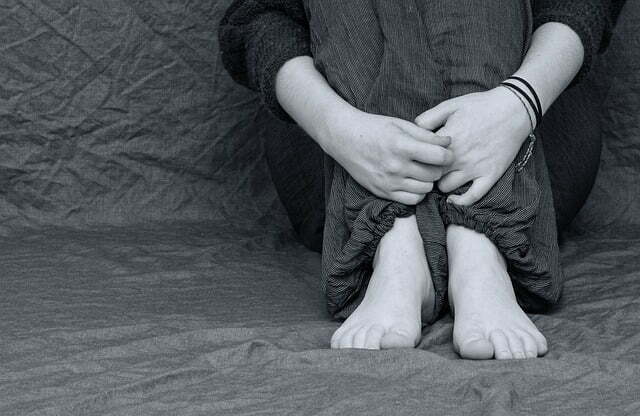A Safeguarding Hub – 15-minute read
A few years ago, I presented a 3-hour workshop to about forty foster carers. The theme of the presentation was missing children and I covered a wide range of topics including, reasons children go missing, risk factors, working in partnership and prevention. It was my first workshop for foster carers, and I thought it a good idea to include a slide which focussed on restraint, suggesting that it was an option for carers in certain situations. Well, I can safely say that I was lucky to complete the session and get out of the room alive, such was the disquiet amongst the group. The overwhelming consensus of opinion was that restraint is taboo, off limits and something that should be left to the police.
When we talk to social workers, carers and staff in residential care placements about missing children, the issue of restraint is by far the most controversial subject area. So much so, that these days we rarely mention it. The major objections are always the same, that any form of physical restraint may lead to accusations of assault from the child, potential arrest, prosecution and the loss of their job. There is of course, always the prospect of being assaulted by the child. I have some empathy with this viewpoint, for it is correct that any use of force will come under robust scrutiny. However, this doesn’t mean to say that carers can’t use physical restraint where it is reasonable and necessary to do so. Where there is a lawful excuse or legal justification for the use of restraint, then it will not be unlawful, as long as the force or restrictions are proportionate.
I am also concerned that there appears to be a general view that under no circumstances can a child be deprived of their liberty, even when it involves no physical force, despite the fact that not to do so would lead to the child being at risk of significant harm. Restraint includes the restriction of movement i.e. locking a door to prevent a child leaving or blocking a doorway. If a child is not free to leave the home, or is under continuous supervision, then this would amount to a deprivation of liberty. However, like physical force, a child can temporarily be deprived of their freedom of movement in an emergency situation e.g. not to do so would mean the child would come to harm.
Ofsted say there may be circumstances where a child can be prevented from leaving a home. The example they provide is where “a child may be putting themselves at risk of injury by leaving the home to carry out gang related activities, use drugs or to meet someone who is sexually exploiting them or intends to do so”. The key elements here are:
- whether staff/carer believe there may be an immediate risk; and
- whether staff/carer believe that by leaving the home there is a risk of injury (physical or psychological).
In fact, Ofsted also point out that a carer should be alert to the fact that a child might want them to stop them, to demonstrate and show concern and give them a reason for not leaving. So, for care providers in foster or residential care, there will be occasions where restraint and restricting movement, will be unavoidable in order to protect the welfare and safety of children in their care. It may also be necessary in order for carers to defend themselves in circumstances where they have reasonable grounds for believing they or another carer will be injured by the child. Ultimately it is a call for the carer based on the circumstances and danger to the child, but the purpose of this article is to highlight that it is an option, albeit it should be the last resort.
Below are some key points regarding restraint. Whilst the legislation and guidance around the use of restraint covers a broad range of circumstances and service providers, the information below is a generalisation. It is not intended to override procedures and policies that will be in place in the various organisations where restraint is relevant. Carers should always seek advice from their various bodies and abide by the legislation.
The government are currently assessing the draft guidance on restraining children.
Restraint is defined as using force or restricting liberty of movement.
Restrictive interventions are deliberate acts to restrict a person’s movement, liberty and/or freedom to act independently.
Restrictive physical interventions involve the use of force to control a person’s behaviour. It can include using bodily contact, changing a person’s environment and in some cases the use of mechanical devices.
- restraint should only be used where it is necessary to do so. This means that restraint should only be used where there is a real possibility of injury or harm to the child or young person, other children or young people, to staff or the public.
- other interventions and de-escalation techniques should be considered before restraint is used.
- restraint and physical interventions should, wherever possible, be avoided, only to be used as a last resort.
- restraint or restrictive techniques must be reasonable and proportionate to the circumstances.
- restraint should always be applied using the minimum amount of force, necessary in the circumstances.
- any use of restraint should be based on risk assessment and aimed at minimising the risk to all people present.
- any restraint or restrictions should only be used in the best interests of the child or young person.
- any restraint should be used in ways that attempt to maintain the safety and dignity of all concerned.
- restraint should never be used as a punitive measure or as an act of aggression; or with the intention of inflicting pain, suffering or humiliation.
- any form of restraint must be lawful and based on individual circumstances.
There are many forms of restraint, many of them only relevant to specific settings. Generally, restraint in foster or residential care settings will be limited to the following types of restraint:
Physical restraint – using reasonable force to physically restrain and restrict a child’s movement.
Withdrawal – removing a child from a certain situation and taking them to a safer place, where there is a better chance of the defusing the situation and the chid becoming calmer. The carer should ordinarily stay with the child to monitor and offer support.
Seclusion – containment and isolation of a child away from others in a room/area from which they are prevented from leaving. Occasions where this might be use are where that the behaviour of the child is such, that there is a likelihood that harm will be caused to others e.g. staff or other children. This method should generally be used as a temporary measure and for a short period of time only and should be supervised. Warning: The governments draft guidance on restraint state that “for young people over 16, without mental capacity, use of seclusion which amounts to a deprivation of liberty must be authorised under the Mental Capacity Act 2005”.
Time out – is where a child is taken away from a difficult situation, accompanied and supervised by a carer in a neutral manner while they calm down. This does not necessarily mean putting them in a room but could involve taking the child for a walk.
Deprivation of liberty
Restricting a child’s freedom of movement will amount to a ‘deprivation of liberty’. Even putting a child in ‘time out’ may be sufficient to count as a deprivation of their freedom, dependent on the circumstances. However, this does not mean that it will necessarily be unlawful if it is done as part of a duty of care in order to protect the child from harm, or risk of harm, to themselves and/or others. Any form of seclusion and restraint should be proportionate to the circumstances and for only for the period of time that it is absolutely necessary.
Long-term segregation which involves preventing a child from mixing freely with other children or young people should never be used in a residential care setting.
Reasonable force broadly means using no more force than is needed in the circumstances. The use of force or restraint will be unique to the individual incident and any force used, will only be reasonable if the circumstances warrant it. Those using force must have reasonable grounds for believing that restraint is necessary in order to justify its use.
There are varying levels of force, from a guiding touch to full restraint. Government guidance states that the degree of force employed must be in proportion to the circumstances of the incident and the seriousness of the risk or behaviour or the consequences it is intended to prevent. Any force used, should always be the minimum needed to achieve the desired result. What is seen as reasonable will depend wholly on the individual circumstance, in other words a ‘one size fits all’ approach is unacceptable.
Any use of restraint carries various risks. As well as the potential for injury to the child and adults involved, the potential trauma that it might cause a child, cannot be underestimated. There is a real possibility that restraint or any form of deprivation of liberty, will have long term emotional impact on the child’s mental health. Therefore, when confronted by an aggressive and threatening child, carers should pursue a policy of managing the conflict, maintaining constructive dialogue and attempt to defuse the situation. The least restrictive intervention available should always be used.
A reminder: any use of restraint should be necessary and proportionate, using the minimum amount of force necessary for the shortest possible time. Physical restraint should always be the last resort. Any restraint or restrictions should be in line with the governments Restrictive Physical Intervention (RPI) procedures
Effective risk assessment is the key to reducing the impact of restraint on the child and also others who are present. In almost all circumstances where the use of restraint is used or considered, it will have evolved from a rapidly developing situation. Therefore, any use of restraint will almost certainly require a dynamic risk assessment. Carer’s should consider the following:
- their knowledge of the child including background, any history of violence.
- the risk that child may face if not restrained.
- the age and understanding of the child.
- the needs of the child.
- physicality and size of the child. potential impact physically and emotionally. Is the restraint potentially going to cause more issues than if it wasn’t applied – i.e. physical injury or psychological trauma.
- techniques – the various methods of restraint available and what method would be the most appropriate. Are the proposed restraint techniques dangerous? A restraint method that worked previously for one child, may well be dangerous for another, dependent on the individual circumstances.
- any disability or health problems the child may have.
- is there help available i.e. other staff that might make the physical act of restraint easier?
- impact of the restraint on future carer/child relationship.
- impact on other children in the home.
- environment – can potential hazards be removed prior to any restraint e.g. furniture, objects. Can non-essential personnel/occupants be removed from the vicinity?
- take control – regardless of the number of adults involved in the restraint, someone should take the lead, be in control and accept responsibility for communicating with the child. This person should adopt a calm and measured approach and focus on de-escalation throughout the incident.
All staff members working in a residential setting, should be trained in the principles of restraint and what techniques can be used legally and those that are not permissible. This training should include positive behaviour support techniques, designed to reduce anxiety and challenging behaviour.
- deliberate pain should never be used in an attempt to force compliance.
- dangerous techniques - under no circumstances should techniques that interfere with breathing or could result in injury to the spine be used. This would include restraints which may cause positional asphyxiation. This is when someone's position prevents the person from breathing properly, such as pinning a person face down to the floor during restraint.
- a carer should never demonstrate anger or lose their temper.
- restraint should never be used to punish a child.
All restrictions of liberty and restraint should be carefully recorded and reported to the relevant authorities without delay. For a regulated provision, any event deemed to be a ‘serious incident’ should be reported to Ofsted.
The incident should be recorded, including:
- the type of restrain used.
- whether any injuries were caused and whether any medical assistance was required.
- rationale for why force/restraint/restrictive interventions were used.
- the outcome.
The provider should review the incident of restraint, examine the circumstances to learn from the incident, establish good/bad practice and amend policies and training if necessary.
The child should be monitored post-incident for signs of emotional or physical distress. Timescales will be dependent on the circumstances and the child, but monitoring might need to be undertaken for a considerable period. The child should be given the opportunity to discuss and reflect on the incident. They might need further help e.g. counselling, or it may be that talking to a trusted person will suffice. This may also apply to other children who were present and could be affected by the incident.
As soon as possible after the incident the carer(s) should be de-briefed by an appropriate person. For foster carers this might be the appointed social worker, or for staff in children’s homes this may be the manager. Using force on a child may well cause the carer(s) distress and support should be offered.
Thanks for reading.

Get Involved!
Share Your own Safeguarding News and Research to reach a wider Audience
From Our Blog
Sextortion – Guide and Resources
Sextortion – a guide and links to useful resources.
Dementia – Sundowning
For most people the end of British Summer Time signals the start of the long dark British winter. For many living with dementia, the clocks turning back an hour can affect routine, one of the possible causes of a pattern of behaviour known as ‘Sundowning’. This can potentially cause a person with dementia to wander and subsequently go missing.
Bullying, sexting and sexual exploitation are not the only online dangers!
Cyber bullying and online sexual exploitation are not the only dangers that lurk on the world wide web for children. Here we look at some of the other safeguarding risks that young people may be exposed to.
Age related milestones relevant to safeguarding children
Age related milestones that are relevant to safeguarding children – a guide.
Related Posts
The Safeguarding Hub
Share Your Safeguarding News And Research To Reach A Wider Audience









